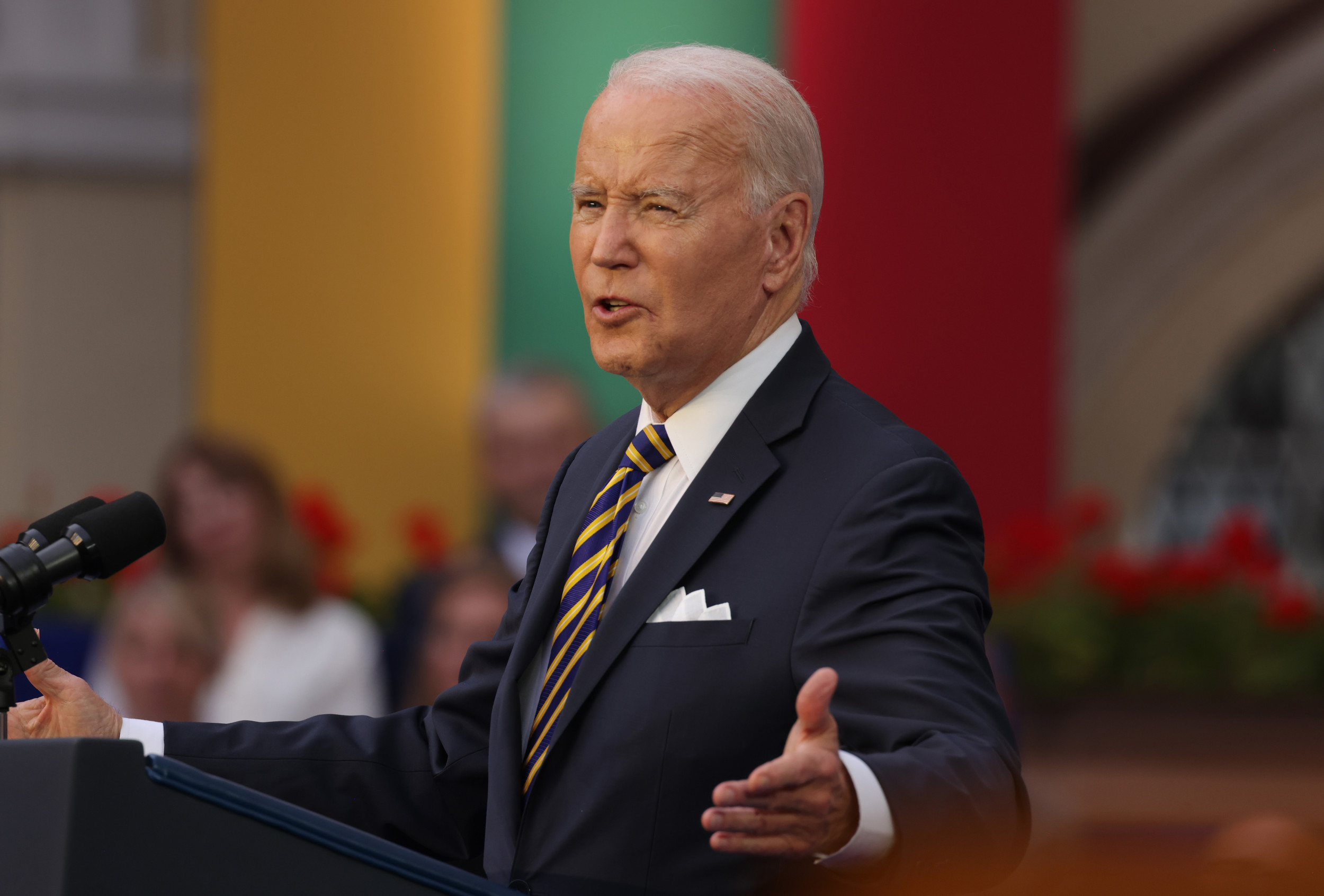Biden’s Key Points and Goals in the NATO Speech: Biden Nato Speech

Biden nato speech – President Biden’s address to the NATO allies in Brussels on March 24, 2022, marked a pivotal moment in the ongoing conflict in Ukraine and the future of the transatlantic alliance. In his speech, Biden laid out a comprehensive set of key points and goals, aimed at strengthening NATO’s unity and resolve, deterring further Russian aggression, and providing support to Ukraine.
One of the central themes of Biden’s speech was the need to reinforce NATO’s collective defense capabilities. He announced the deployment of additional U.S. troops to Europe, the establishment of a new NATO headquarters in Poland, and the activation of new NATO response forces. These measures were designed to send a clear message to Russia that NATO was prepared to defend its members against any threats.
Reinforcing Collective Defense
- Deployment of additional U.S. troops to Europe
- Establishment of a new NATO headquarters in Poland
- Activation of new NATO response forces
Biden also emphasized the importance of providing economic and humanitarian assistance to Ukraine. He announced a new $800 million package of military aid, including anti-aircraft systems, drones, and armored vehicles. Additionally, he pledged to continue working with allies to provide humanitarian support to the Ukrainian people.
Biden’s address to NATO reaffirmed his commitment to the alliance and highlighted the challenges it faces. For the latest updates on Biden’s speech and other related news, visit biden news today. The speech underscored the importance of unity and collective action in addressing global threats and advancing shared values.
Support for Ukraine
- $800 million package of military aid
- Anti-aircraft systems, drones, and armored vehicles
- Continued humanitarian support
In addition to these specific measures, Biden also Artikeld a broader vision for the future of NATO. He called for a more robust and agile alliance, capable of responding to a wide range of threats, including cyberattacks, terrorism, and climate change. He also emphasized the importance of strengthening NATO’s partnerships with other countries and organizations around the world.
Biden’s speech at NATO emphasized the strength of the alliance, particularly in the face of ongoing challenges. He reaffirmed the commitment to collective defense and highlighted the importance of unity among member states. For more insights into Biden’s NATO address, visit biden nato for a comprehensive analysis of the speech and its implications for transatlantic relations.
Vision for the Future of NATO
- More robust and agile alliance
- Response to cyberattacks, terrorism, and climate change
- Strengthened partnerships with other countries and organizations
Biden’s speech was a clear and forceful statement of the United States’ commitment to NATO and its allies. It laid out a comprehensive set of goals and initiatives designed to strengthen the alliance, deter Russian aggression, and support Ukraine. The speech was well-received by NATO leaders and is likely to have a significant impact on the future of the alliance.
Reactions and Analysis of the Speech
President Biden’s speech at the NATO summit was met with overwhelmingly positive reactions from allied leaders and analysts. The speech was seen as a reaffirmation of the United States’ commitment to NATO and a call for unity in the face of Russia’s aggression.
NATO Secretary General Jens Stoltenberg said that the speech was “a clear and strong message of unity and determination.” He said that the speech “sent a clear message to Russia that NATO is united and will not be intimidated.”
Impact on NATO’s Unity and Cohesion
The speech is widely seen as a major step forward in strengthening NATO’s unity and cohesion. The speech has helped to reassure allies that the United States is committed to the alliance and that it will not allow Russia to divide NATO.
The speech has also helped to strengthen the transatlantic relationship. The speech has shown that the United States and Europe are united in their commitment to democracy and freedom.
Potential Implications for Future Transatlantic Relations and Global Security
The speech has significant implications for future transatlantic relations and global security. The speech has helped to rebuild trust between the United States and Europe and has shown that the two sides are united in their commitment to democracy and freedom.
The speech has also sent a clear message to Russia that NATO is united and will not be intimidated. The speech has helped to deter Russia from further aggression and has contributed to the stability of Europe.
Historical Context and Comparisons

NATO’s evolution and Biden’s role in shaping it have a long and complex history. Biden has been a vocal supporter of NATO throughout his career, and he played a key role in shaping the alliance’s response to the 9/11 attacks and the subsequent War on Terror. In recent years, Biden has been a strong advocate for strengthening NATO’s ties with its partners in the Asia-Pacific region, and he has also been a vocal critic of Russia’s aggression in Ukraine.
Comparison to Previous Speeches, Biden nato speech
Biden’s speech to NATO was similar in tone and substance to previous speeches by US presidents on NATO and transatlantic relations. Like his predecessors, Biden emphasized the importance of NATO’s collective security guarantee and its role in deterring aggression. He also called for a stronger NATO presence in the Asia-Pacific region and criticized Russia’s aggression in Ukraine.
However, there were also some notable differences between Biden’s speech and previous speeches by US presidents. First, Biden placed a greater emphasis on the importance of NATO’s values. He argued that NATO is not just a military alliance, but also a community of democracies that share a commitment to human rights, the rule of law, and individual liberty.
Second, Biden called for a more inclusive NATO. He argued that NATO should be open to new members, including countries from the Asia-Pacific region. He also called for NATO to do more to address non-traditional security challenges, such as climate change and terrorism.
